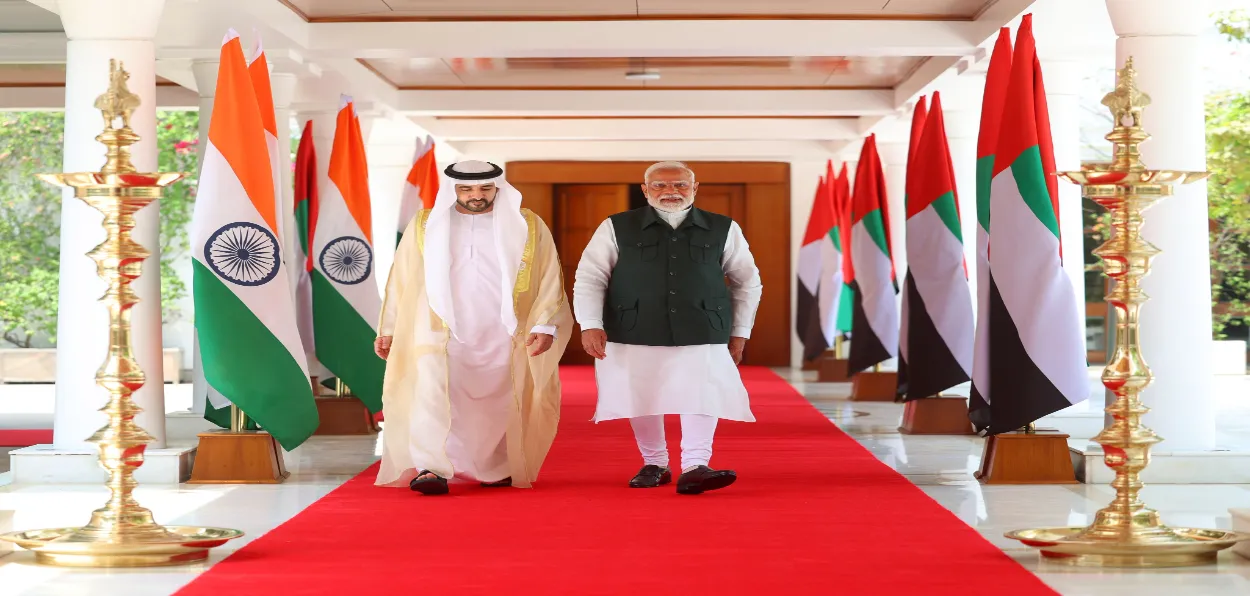
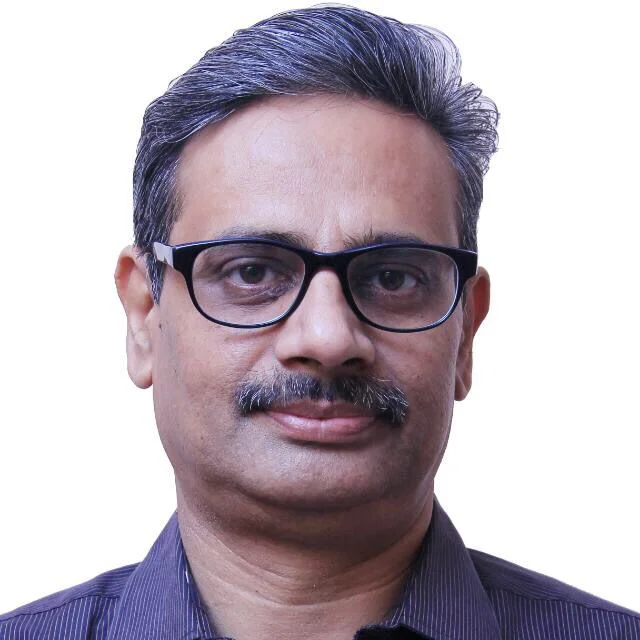 Shankar Kumar
Shankar Kumar
As the storm triggered by US President Donald Trump’s move on tariffs has put the world on edge, India is quietly strengthening its soft power footprint—particularly, in the Gulf region. A few days back, the Indian Institute of Management Ahmadabad (IIMA) signed a Memorandum of Understanding (MoU) with the United Arab Emirates (UAE) government to set up a new campus in Dubai. This move marks India’s effort to deepen its educational and cultural engagement with the Gulf country, where internationally recognised institutes such as the Indian Institute of Technology Delhi (IIT Delhi) were already established as a campus in Abu Dhabi in 2023.
In February 2024, the Central Board of Secondary Education established its first regional office in Dubai. India has also set up a Centre of Excellence in the UAE to provide in-service training for educators, equipping them with cutting-edge skills and knowledge to advance their teaching practices as New Delhi’s strategic intent tis o expand its influence through soft power diplomacy in the region.
Experts say that by offering internationally recognised academic programmes in the Gulf and Arab nations, India is not only trying to cater to the region’s large Indian diaspora but to augment its image as a hub of quality education and innovation remains intact.
This aligns with New Delhi’s broader objective of enhancing people-to-people connections and building long-term goodwill through soft power in the Gulf and Arab countries. Its glimpse can be seen in the first India-Arab Universities’ Presidents’ Conference which was held this year from February 5 to 6 in New Delhi.
Organized by the Ministry of External Affairs (MEA) in association with the University Grants Commission (UGC) and the League of Arab States (LAS), the Universities’ Presidents’ Conference was attended by delegates from Arab countries and representatives from Indian universities.
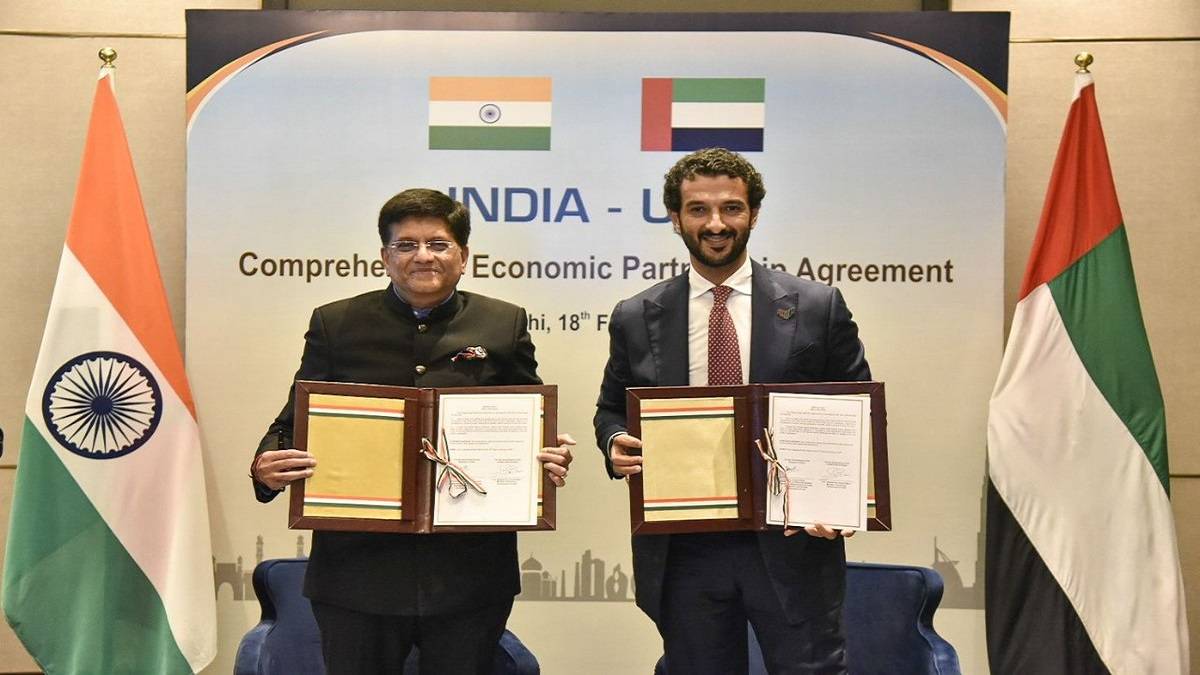
Minister Commerce and Industry Piyush Goyal and UAE's Minister of Economy, Abdulla bin Touq Al Marr after signing Comprehensive Economic Partnership Agreement
In consonance with India’s strategy to reach out to Gulf and Arab countries for a meaningful and productive engagement, the two-day event focused on higher education, skill development, sharing experience in the usage of digital platforms, promoting joint scientific and technological research and innovation in areas such as AI, Quantum Computing and Biotechnology.
While such initiatives help in developing mutual understanding and fostering institutional relationships between India and Arab countries, they also offer an alternative to Western and Chinese models of engagement in the region, reinforcing its identity as a nonintrusive and reliable partner. Moreover, these contribute to augmenting the global image of India as a country that is synonymous with knowledge, culture, inclusivity, and technological progress.
This was evident when the Association of Indian Universities (AIU) and the Association of Arab Universities signed an MoU on February 8 to enhance academic collaboration, research, and mobility of students and faculty between India and Arab nations. Significance of capacity building Under the capacity building programme---an important strand of India’s development partnership initiative---youths from Arab countries are trained each year across sectors, including education, infrastructure, and governance.
Specialised training courses are also organised for diplomats from Arab nations. According to the MEA, in July 2019, 16 diplomats from member states of the League of Arab States (LAS) participated in a tailored course on international relations conducted by the Foreign Service Institute in New Delhi.
Two years ago, in August 2023, India hosted a training programme for 21 young Arab diplomats, further strengthening diplomatic and developmental ties with the region.
Though capacity building through education plays a significant part in advancing India’s soft power in the Gulf and Arab nations, Bollywood films, music, and dance have also surged in popularity across the region.
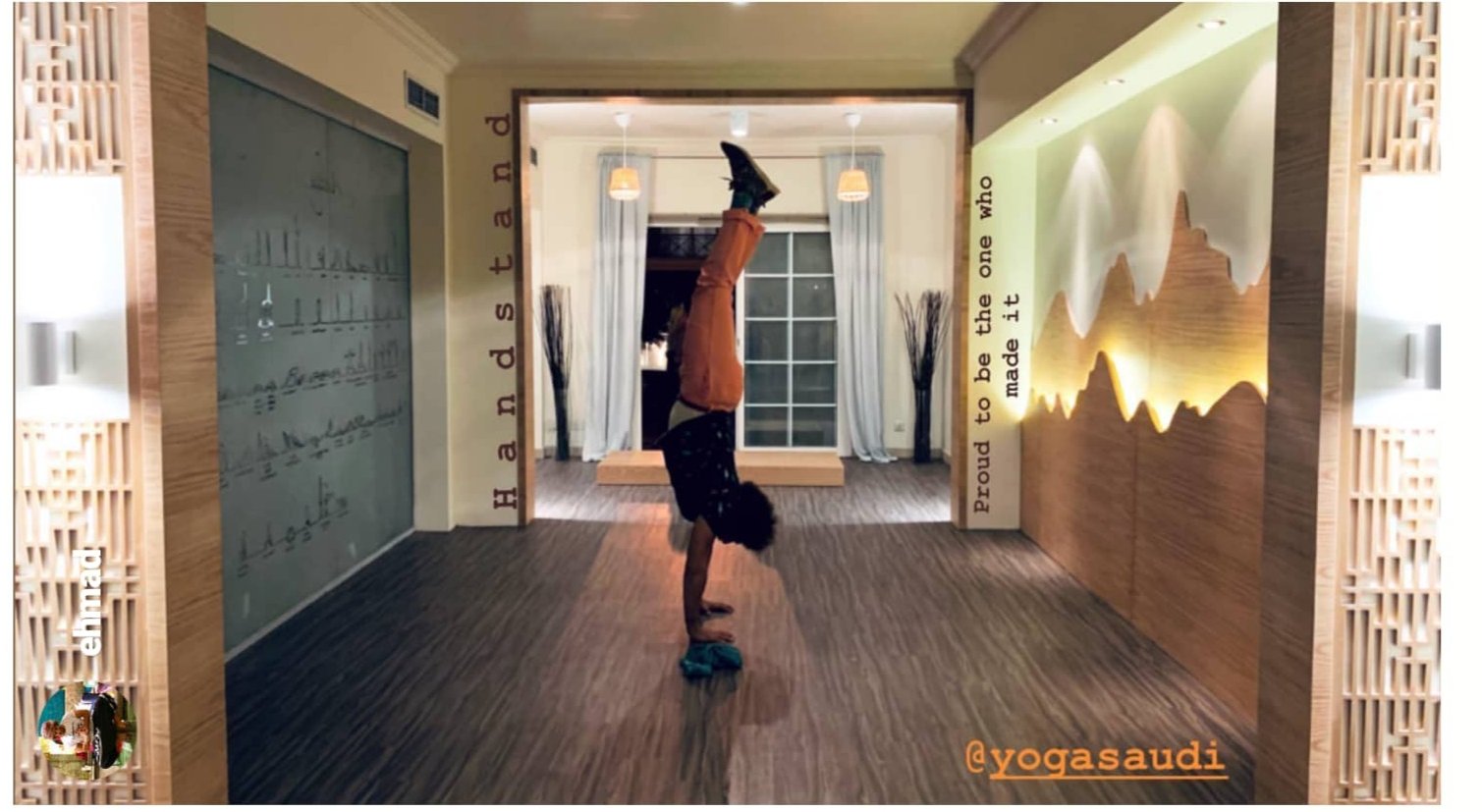 A Yoga center inspired by Himalayans in Saudi Arabia
A Yoga center inspired by Himalayans in Saudi Arabia
Practiced by nationals of the countries of the Gulf Cooperation Council (GCC) and the LAS for over a decade, yoga has today become synonymous with wellness and good health across the region. Yoga is a holistic practice of body and mind that traces its roots to the ‘Yoga Sutra’ of Patanjali, written around 500 BCE.
In November 2017, Saudi Arabia’s Ministry of Commerce approved the teaching and practice of yoga as a sport in the Kingdom. Nouf Al-Marwaai, Saudi Arabia’s first certified yoga instructor and recipient of India’s fourth-highest civilian honour, the Padma Shri, (awarded in 2018), is widely credited with popularising yoga in the Kingdom.
In November 2024, the UAE Sports Ministry hosted the 6th General Assembly of the Asian Yogasana Sports Federation (AYSF) in Dubai and representatives from 15 countries, including Saudi Arabia, Iran, and Palestine, attended it. Media reports say the organisers wanted to spread awareness about Yogasana as an emerging sport through the event.
Yoga has emerged as an integral part of daily life across the UAE. From schools and fitness centers to workplaces and hospitals, yoga and meditation are now embraced as essential tools for well-being in the Gulf country, reflecting its broader vision for a healthier society.
Whether it is the UAE Vision 2031 or Saudi Arabia’s Vision 2030—yoga aligns closely with values enshrined in Arab culture---discipline, inner peace, and self-reflection. Kuwait follows the same perspective regarding yoga.
Shaikha AJ Al Sabah, a 48-year-old yoga practitioner from Kuwait was conferred with Padma Shri in January 2025 for promoting the ancient Indian practice in the Gulf country.
Shahrukh Khan in movie Dunki
However, Bollywood films add weight to India’s engagement with the Arab. Entertainment value inherent in Hindi films—marked by animated dance sequences, vibrant and lively music, and emotionally charged storytelling—has found a receptive audience in several Arab nations.
These elements, combined with shared cultural sensibilities, contribute to enhancing the popularity of Bollywood films in the region. Shahrukh Khan is hugely popular in the Arab world, particularly in the UAE.
In the post-pandemic phase, his films such as Jawan, Pathan, andDunki have reportedly performed well in Gulf markets, reaffirming the strong cinematic and cultural linkages between India and the Arab world. What is significantly intrinsic to Bollywood films is their ability to resonate with a diverse audience worldwide. This cements the cultural exchange and people-to-people connection and boosts diplomatic ties.
Through the multidimensional approach to diplomacy--one that avoids coercion or economic leverage - and on the power of education, capacity building, yoga, wellness, and culture, India has made significant efforts to make its presence felt in the Gulf and Arab countries.
ALSO READ: How ISRO is helping India strengthen its ties with Islamic countries
Despite lacking the economic muscle of the West or China, India has made significant strides in deepening its engagement with Arab countries by consistently fostering people-to-people ties and promoting shared cultural values. In the era of growing interconnectedness and globalisation, this strategy has largely paid off dividends for India as it has enabled it to carve out a distinctive and respected presence in the region.
